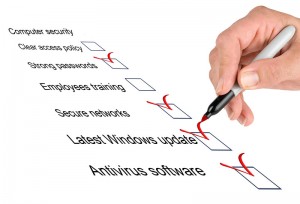 With technological security risks becoming more prevalent and complex, there can often be some confusion as to whether you have sufficient protection from viruses and malware.
With technological security risks becoming more prevalent and complex, there can often be some confusion as to whether you have sufficient protection from viruses and malware.
It’s important to understand that basic or free virus programs may not provide sufficient protection from viruses and malware attacks, especially for use in business. Malware encompasses many forms of malicious attacks, from simple nuisances to serious security risks, and viruses are just one type of malware.
Some types of common viruses and malware include:
Spyware – This type of malware hides on a computer for the purpose of tracking activity and sometimes to steal usernames and passwords.
Trojans – Just like the name suggests from Greek mythology, a Trojan will cloak itself in what appears to be a normal file. Trojans can contain viruses, spyware, worms or other forms of dangerous malware.
Ransomeware – Ramsomeware encrypts your computer’s files and holds them for ransom while demanding payment for the encryption key. One of the more well-known ransomeware viruses is the Cryptolocker. (Routine and frequent file backups helps to ensure you will never need to pay the ransom since you’ll have a recent copy.)
Adware – Adware is more of a nuisance than dangerous, though at times, may also contain spyware. Adware is the malware responsible for allowing unwanted advertising, pop-ups, and browser re-directs on your computer.
Worms – Worms replicate themselves and spread through computer networks. Worms can access, modify, delete files, and piggyback other types of malware.
If you are uncertain whether your business has sufficient protection from viruses and malware, our specialists can analyze your current network infrastructure and design network security to fit your business needs. Contact our experts for more information.



